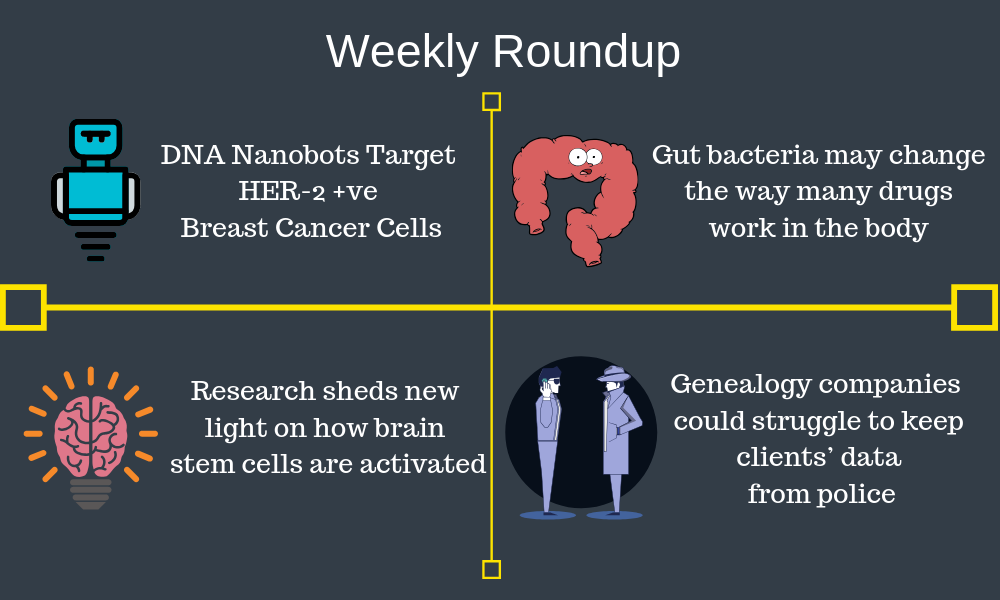 Menu
Menu
17 Jun 2019

"About 20% of breast cancers make abnormally high levels of a protein called human epidermal growth factor receptor 2 (HER2). When displayed on the surface of cancer cells, this signaling protein helps them proliferate uncontrollably and is linked with a poor prognosis. Now, researchers have developed a DNA nanorobot that recognizes HER2 on breast cancer cells, targeting them for destruction."
Past anecdotal reports have suggested that our gut microbes may be modifying patients oral medications. A new study has tested the ability of 76 different gut bacteria to change the molecular structure of 271 oral medications and has found that gut bacteria do indeed modify drugs. Will this be one of the first steps on the way to tailored medications based on a patients microbiome?
"Match, a public genealogy website that police have used to solve murders, has changed its rules on police use. That move could hurt, rather than help, efforts to protect DNA information in databases owned by private companies"
"Scientists have found that neural stem cells use molecules that form a complex called STRIPAK to 'wake up' and produce new neurons (nerve cells) and surrounding glial cells in the brain."
If you enjoyed reading our articles, why not sign up to our blog mailing list? You'll get new articles straight to your inbox as they're released!